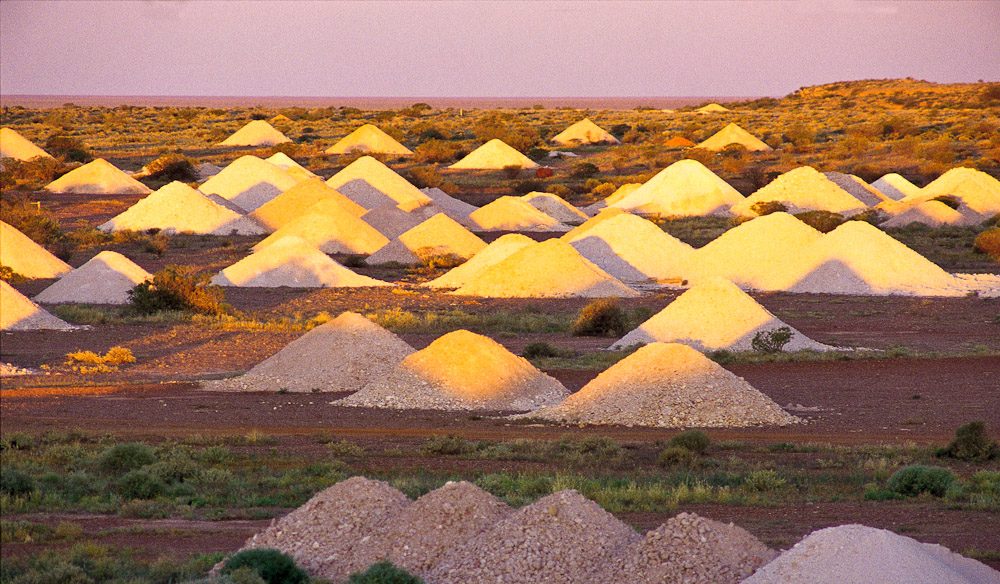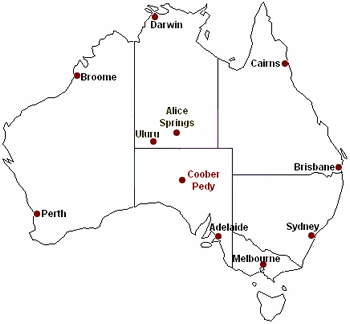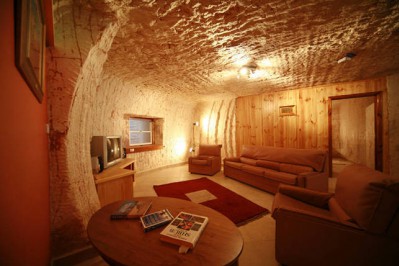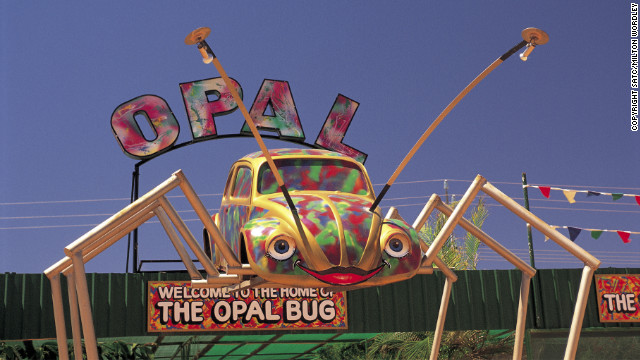Among the several outrages of Russian President Putin's stance and actions on Russia's Western borders, is the opening it has allowed for extremists to re-emerge. As one young woman remarked after a stay in Eastern France five years ago, "In the U.S., Hitler may have been relegated to the rubbish bin, but in Europe, he continues to loom large ..."
As Putin out-bluffs and out-maneuvers Western European nations and the US (earlier in Georgia, in Syria, and now in the Ukraine) expanding his de-facto Mother Russia borders, anti-semitic flyers have emerged in the Eastern Ukrainian city of Donetsk.
Click on image for full picture
.JPG?itok=bs4Nf9dl) Donetsk, with a population of 1 million, is one of several eastern Ukrainian cities that have experienced pro-Russian militants emerge, storm and occupy government buildings. Graphic from the Washington Post
Donetsk, with a population of 1 million, is one of several eastern Ukrainian cities that have experienced pro-Russian militants emerge, storm and occupy government buildings. Graphic from the Washington Post
As reported in the Guardian newspaper, masked men were confronting people at Donetsk's only remaining synagogue last Wednesday, distributing the notices. "The flyer asks all Jewish citizens aged 16 and older to register with the "Donetsk Republic commissar for nationality affairs" and pay a $50 fee, "given that the leaders of the Jewish community of Ukraine support the Banderite junta in Kiev and are hostile to the Orthodox Donetsk Republic and its citizens. Those who refuse to register will be deprived of citizenship and forcibly expelled from the republic and their property will be confiscated."
Click on image for full picture
 The chief rabbi of Donetsk, Pinchas Vyshetsky, holds one of the flyers. Photo from http://yalibnan.com
The chief rabbi of Donetsk, Pinchas Vyshetsky, holds one of the flyers. Photo from http://yalibnan.com
The masked men apparently left quickly when confronted, but news of the incident quickly spread worldwide with reactions from anger to grief. Within another few hours, the new pro-Russian militants holding court over the city denied their involvement, saying it was an effort to discredit their position. All of which may be true.
Ukraine has had a long checkered history of anti-semitism, and in broader terms, much of Eastern Europe has similarly. In World War II, Jews were attacked both spontaneously and with planned intention by significant elements within these nations, only to be surpassed by or incorporated willingly into the Nazi's program for a final solution. In Ukraine alone, nearly 900,000 Jews were killed during the Nazi occupation. (At the same time, to emphasize the complexity, Ukraine citizens are 4th in number in Israel's "Righteous among the Nations" recognition.)
Hitler, neo-Nazis, fascism and communism still deeply divide this Slavic nation.
While the West saw most of Ukraine's population supporting a pro-European stance, disgusted with previous president Yanukovych's self-enrichment and personal political agenda, there was nonetheless more than a fringe presence of a variety of ultra-nationalists involved the removal of the pro-Russian leader.
As a recent Washington Post article observed, "for Ukraine and Russia, no era or actor is more omnipresent in today’s crisis than World War II and Stepan Bandera. Born in an obscure village in 1909, Bandera in the early 20th century fought for an independent Ukraine, which at the time was carved up between Poland and the Soviet Union. Honoring what they see as his legacy as a thorn in the side of the Soviets, Ukrainian nationalists have strung up a massive poster of their hero in this city’s Independence Square, using him as a rallying cry against the new menace in Moscow.
But if Bandera is idolized by some in the capital and western Ukraine, he is reviled as a fascist in much of the heavily ethnic-Russian east and south as well as in Russia itself. There, memories are still fresh of Soviet-era campaigns that sought to discredit Bandera, and his quest for a Ukrainian homeland, by playing up his ties to Germany’s Third Reich."
Click on image for full picture
 Stepan Bandera poster in central Kiev during the recent uprising against Yanukovych. In modern Ukraine, Bandera is an individual who represents the tensions of a divided country where to some he is loved, and loathed by others. As the WP article puts it, "How do you unite a nation that clings to different heroes?" Photo by Nikki Kahn/The Washington Post
Stepan Bandera poster in central Kiev during the recent uprising against Yanukovych. In modern Ukraine, Bandera is an individual who represents the tensions of a divided country where to some he is loved, and loathed by others. As the WP article puts it, "How do you unite a nation that clings to different heroes?" Photo by Nikki Kahn/The Washington Post
What the flyers represent on one level, then, is an attempt to discredit one group or another with links or reminders of Nazi ideology. And as the Chief Rabbi of Donestsk puts it, ""I think it's someone trying to use the Jewish community in Donetsk as an instrument in this conflict. That's why we're upset..."
Indeed, the conflict in Ukraine has quickly turned into a geopolitical chess match - Russia dredging up its anger over the Balkan War, now 20 years old, (mainly pounding away at its mantra - don't interfere with sovereign internal affairs) and other past slights, implying there is still much to be redressed to "protect" Russian remnants throughout Eastern Europe. And lost in all this, Teatree wonders whether there is any interest or capability by either pro-Russian militants or Ukrainian authorities in Donetsk to pursue culprits who passed out anti-semitic flyers, putting the local Jewish population in the forefront as a pawn in the larger maneuverings.
Click on image for full picture
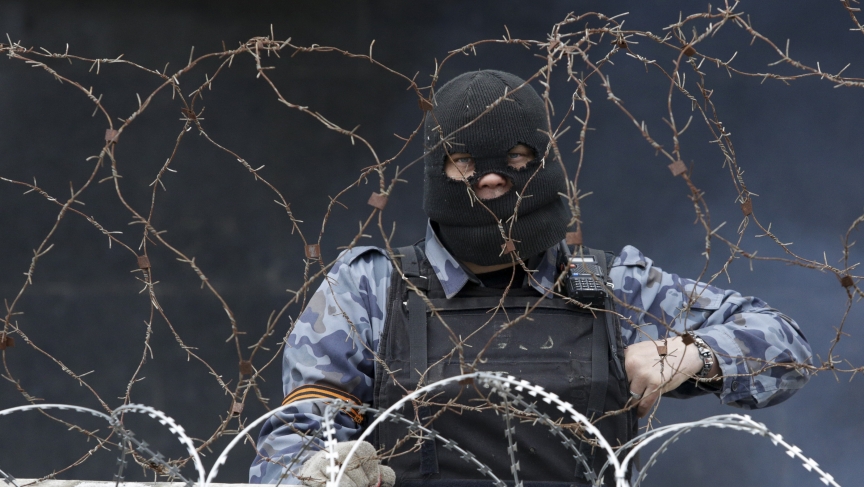 Another of the many charges thrown at Russia by Europe and the US, is the presence of organized Russian military elements or under its direction, in the guise of pro-Russian citizens of Ukraine. For Russia, always having stood by the concept of "non-interference" in other nations' affairs - this charge seems intertwined with hypocrisy. Photo from www.pri.org
The anti-semitic incident brings to the forefront the issue of fundamental governing responsibilities and the many levels that fall short of the mark
Another of the many charges thrown at Russia by Europe and the US, is the presence of organized Russian military elements or under its direction, in the guise of pro-Russian citizens of Ukraine. For Russia, always having stood by the concept of "non-interference" in other nations' affairs - this charge seems intertwined with hypocrisy. Photo from www.pri.org
The anti-semitic incident brings to the forefront the issue of fundamental governing responsibilities and the many levels that fall short of the mark
Most modern societies are characterized by a ceding over the responsibility of sanctioned violence, or the enforcement of law and order, to the duly authorized government (city, county, state, province, oblast, and federal levels). In exchange, the government is expected to actively pursue and end unsanctioned violence, as well as incidents of persecution directed at individuals or groups among the population.
(Interestingly, in the US, there is a pronounced, and constitutionally enshrined, right of citizens to be wary of giving government that very tool. Yes, the government should take the lead, vigilante justice is not the preferred approach, but there remains a right to bear arms.)
As one of the better articles Teatree has read on this Ukraine drama,
Ukraine crisis: Donetsk anti-Semitic leaflets stir old fears it concludes, "As the stand-off between Russia and Ukraine deepens, so does the dangerous power vacuum that it has created. Like any conflict, it has already begun to unleash long-dormant religious and ethnic tensions. Minority groups here fear that they will be the biggest victims of this conflict between two Orthodox, Slavic nations."
So one could create a hierarchy of good governance in protecting its citizens as follows:
#1 Active, principled pursuance by the government of criminal elements, including proactive steps towards strengthening the rule of law, is the ideal.
#2 A major step down is a studied indifference to rights, especially of minorities, or any sphere of lawbreaking. Many nations have fallen short of this at various eras. One only needs to look at the US' Jim Crow laws allowed for so many decades and clear into the 1960s ...
#3 Active persecution or favoritism shown regarding one minority or class over another. One can take one's pick of all sorts of examples of this. Naziism and Communism probably rank the most odious, with the common thread being statism, or the importance of the state itself, over the individual. Islamic theocracies follow ...
#4 Sheer incompetence and corruption keep governments from fulfilling their responsibilities. It seems Nigeria with all its oil wealth, falls into this category, apparently unable to tackle its Boko Haram insurgency.
#5 Sheer inability of a central government to maintain law and order; anarchy, militias, and warlords reign instead. Afghanistan's recent history immediately after the Soviet Union withdrawal comes to mind that culminated in a new low - governance by the Taliban.
 Whether one young Jewish boy of the 15,000 Jews left in Donetsk, or the Tatars of Crimea, it seems under the new Russian expansion, that many face an uncertain and constricted future. Photo from the BBC
Whether one young Jewish boy of the 15,000 Jews left in Donetsk, or the Tatars of Crimea, it seems under the new Russian expansion, that many face an uncertain and constricted future. Photo from the BBC
 2009 marches for better Syrian governance were, in hindsight, impossibly naive and optimistic. Photo from ctv.news
2009 marches for better Syrian governance were, in hindsight, impossibly naive and optimistic. Photo from ctv.news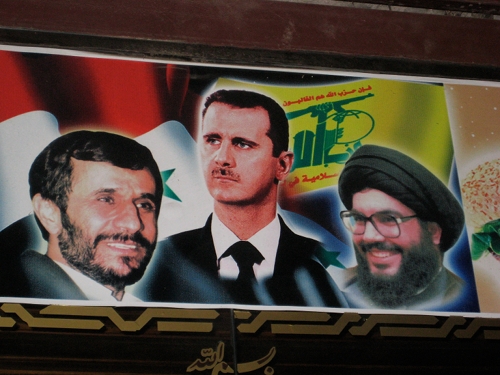 The regional actors: former Iran President Ahmadinejad, beleaguered Syrian President Assad, and Islamic leader of Hezbollah, Nassrallah. The fourth influential supporter, Russia's President Putin, is busy elsewhere ... Photo from www.ipsnews.net
The regional actors: former Iran President Ahmadinejad, beleaguered Syrian President Assad, and Islamic leader of Hezbollah, Nassrallah. The fourth influential supporter, Russia's President Putin, is busy elsewhere ... Photo from www.ipsnews.net Syrian children caught up in the latest gas attack by their government. Okay, to use moderate and enlightened diplomacy-speak, Teatree will insert "allegedly" into the picture caption. Photo from www.therepublic.com
Syrian children caught up in the latest gas attack by their government. Okay, to use moderate and enlightened diplomacy-speak, Teatree will insert "allegedly" into the picture caption. Photo from www.therepublic.com U.S. President Obama, symbolically just barely relevant to the occasion as illustrated in this photo, has also been left sputtering over Russia's military move into the Crimean peninsula (followed by a quick referendum that formalized the takeover), "That is not how-- international-- law and international norms are observed in the 21st century." Photo from offshorebalancer.wordpress.com
U.S. President Obama, symbolically just barely relevant to the occasion as illustrated in this photo, has also been left sputtering over Russia's military move into the Crimean peninsula (followed by a quick referendum that formalized the takeover), "That is not how-- international-- law and international norms are observed in the 21st century." Photo from offshorebalancer.wordpress.com Taken in March 2014, from Assad's own facebook page. Assad, his wife, and various synchophants ... Photo and description from gulfnews.com
Taken in March 2014, from Assad's own facebook page. Assad, his wife, and various synchophants ... Photo and description from gulfnews.com
.JPG?itok=bs4Nf9dl)




